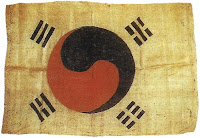
South Korea does not recognise the right to conscientious objection. Objectors to military service are sentenced to 18 months in prison. Korea has the largest number of conscientious objectors serving in prison, and most of them are Jehovah's Witnesses. Click here for a previous blog on the subject.
The situation in Korea is different from many other countries and the conscientious objection movement has a hard road ahead to find approval. The Catholics for the most part are opposed to alternative service for those with problems of conscience. The Catholic Bishops do not have any formal statement on the issue.
The previous South Korean government announced preparations for a law recognizing conscientious objection, but the new government has abandoned these plans. Amnesty International, War Resisters' International and other human rights and peace organizations are campaigning for South Korea to recognize the right to conscientious objection.
A Nahnews report mentioned a Catholic who made a telephone call to the Military
Manpower Administration a few days ago, refusing to serve in the military. He was a member of the college student group in the Seoul Archdiocese. The chaplain of the group made clear the Church's teaching on conscientious objection and supports the young man in his decision.
In January 2007, the United Nations Human Rights Committee recognised the right to conscientious objection as a legitimate exercise of the right to freedom of thought, conscience, and religion,
There has been some improvement in the understanding of what conscientious objection entails and the reason for accepting it as a viable response for those who do not in conscience want to serve in the military. One of our Korean Maryknollers, Fr. Russ Feldmeier back in 1968 refused to serve in the Vietnam War and joined the Peace Corps as his alternative service. He came to Korea, served as a Peace Corps member and after his term of duty was over, returned to the States to join Maryknoll. Ordained to the priesthood in 1980 he returned to Korea as a missioner, and is presently working with a team on partnership issues and interested in human rights. He feels strongly that we should have an alternative response for those who do not want to serve in the military and shows strong support for those who are now making a stand for conscientious objection status in Korea.





